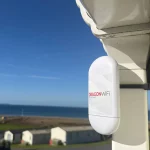EU Council Moves to Weaken Net Neutrality and Scrap Free Mobile Roaming
The Council of the EU, which represents the governments of Europe’s member states (e.g. UK, France, Italy etc.), has put a spanner in the works of long held plans to end mobile roaming charges and safeguard open Internet access (Net Neutrality) by attempting to water down the proposed rules for a new Single Telecoms Market.
Last year saw both the European Commission (EC) and the European Parliament (EP) reach agreement on the construction of a new Single Telecoms Market (details here and here), which promised to deliver cheaper mobile roaming, stricter guidelines to help safeguard open Internet access (Net Neutrality) and new measures to boost superfast broadband development.
Advertisement
In particular the previously agreed rules sought to “end [mobile] roaming charges” (those that apply within the EU) by the end of 2015 and it also stated, “the principle of “net neutrality” means that traffic should be treated equally, without discrimination, restriction or interference, independent of the sender, receiver, type, content, device, service or application” (i.e. ISPs should not deliberately throttle traffic to content providers, except in certain extreme circumstances such as to block illegal content etc.).
The new rules also introduced many other measures, including proposing various improvements to make switching broadband, phone and mobile providers a lot easier. But the above two issues have remained the most contentious due to the complexity and economic impact of their potential introduction.
The plan was for the rules to become law from 30th June 2016, except they first had to meet the approval of member states and some of those states weren’t too happy with the gravity of what had been proposed. As a result the Council of the EU has now initiated a new round of negotiations with the European Parliament, with the hope being that they can soften what has already been agreed, albeit only focusing on the two key areas mentioned above – roaming and net neutrality.
On the move to scrap mobile roaming fees, the council has instead proposed a limit on the amount of free roaming (aka – Basic Roaming Allowance) that would give consumers a small allowance of free calls, texts and data before returning to a charged model once expired (the charges would be less than today). On top of that it would not even consider the introduction of totally free roaming until another review in the middle of 2018.
Advertisement
Precise details of how big these “free” allowances could be have yet to be agreed, although in terms of data usage (Mobile Broadband) the proposal hints at a measly 5MB (MegaBytes) without charges per day!
Council of the EU – Statement on Roaming Reform
The Council stance sets up a new pricing mechanism, which will make it much cheaper to use your mobile phone when travelling abroad in the EU. Within certain limits to be determined, consumers could make and receive calls, send SMSs and use data services without paying anything extra on top of the domestic fee.
Once this basic roaming allowance is used up, the operator may charge a fee, but this fee will be much lower than current charges. In the case of calls made, SMSs sent and data used, the roaming fee could not in any case be higher than the maximum wholesale rate that operators pay for using the networks of other member states. For calls received, the maximum surcharge will be the weighted average of maximum mobile termination rates across the EU.
As the next step, the Commission will be asked to assess by mid-2018 what further measures may be needed with a view to phasing out roaming charges. If so, the Commission will propose new laws to address the situation.
As for Net Neutrality, on the surface the council’s proposal appears to speak the same language as the previous agreed draft rules (see below), but the proposed rule changes are now a bit more ambiguous and appear to include a number of new exceptions for managing Internet traffic (e.g. to tackle hackers and cybercrime etc.).
Crucially though there’s also a new exception that allows ISPs to favour traffic from a service if it requires a “specific level of quality“, although the ISP would still have to ensure a good quality of Internet access for others.
The idea is that this could apply to critical anti-spam, car related “traffic” management or CCTV systems, yet the risk of using ambiguous language is that it might also allow such rules to be applied more generally and that could defeat some of the original purpose behind the changes.
Advertisement
Council of the EU – Statement on Open Internet Policy
The draft regulation is to enshrine the principle of end-users’ right to access and distribute content of their choice on the internet. It also sets out to ensure that companies that provide internet access treat traffic in a non-discriminatory manner.
It sets common rules on traffic management, so that the internet can continue to function, grow and innovate without becoming congested. Blocking or slowing down specific content or applications will be prohibited, with only a limited number of exceptions and only for as long as it is necessary. For instance, customers may request their operator to block spam. Blocking could also be necessary to prevent cyber attacks through rapidly spreading malware.
As regards services other than those providing internet access, agreements on services requiring a specific level of quality will be allowed, but operators will have to ensure the quality of internet access services.
National regulatory authorities will play a key role in ensuring that telecom companies and operators respect the rules on open internet. For this, they will receive guidance from the Body of European Regulators BEREC.
The disagreements between member states and Europe’s other policy making institutions is not unexpected and was first signalled in 2013 when the Body of European Regulators of Electronic Communications (BEREC), which represents national telecoms regulators (e.g. Ofcom in the UK) from across Europe, expressed concern that what was being proposed might be “counterproductive” because the EC had “not adequately demonstrated that its proposals would generate value” (here).
Naturally many in the EP aren’t particularly happy with all this and have stated that the roaming proposals “lack ambition” and would “undoubtedly seriously disappoint citizens“. The ministers also said that the councils new Net Neutrality proposals had been “weakened” and “go against the European Parliament’s repeated calls for clear definitions“.
Hopefully some compromise can be found in the coming negotiations.
Mark is a professional technology writer, IT consultant and computer engineer from Dorset (England), he also founded ISPreview in 1999 and enjoys analysing the latest telecoms and broadband developments. Find me on X (Twitter), Mastodon, Facebook, BlueSky, Threads.net and Linkedin.
« Virgin Media UK Complete 50000 Homes in East London Network Expansion

















































Comments are closed